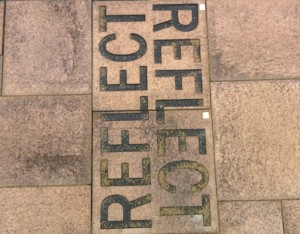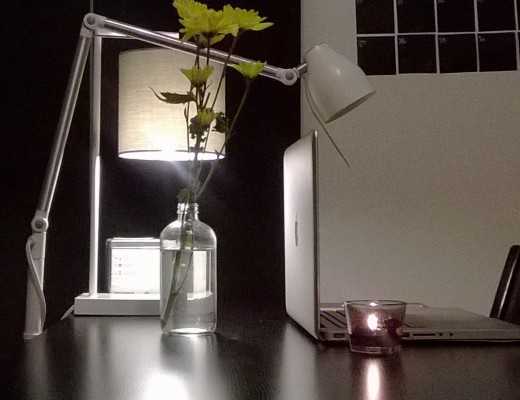 Recently, a man I’ve been seeing told me that he hasn’t mentioned me to his therapist.
Recently, a man I’ve been seeing told me that he hasn’t mentioned me to his therapist.
“Things are going well,” he told me. “There’s nothing to say when the feelings are good. It’s the problems that need talking about.”
And I know exactly what he meant, because this perfectly encompasses the dilemma I have with writing. When I am happy, when things in my life are going well, I don’t feel the need to express that happiness to myself. I can just feel it, and enjoy it. It’s when things are not going well that thoughts pile up, waiting to be spilled onto a page. But even then, my expression usually forms itself as fiction. I shy away from any personal writing more cohesive than some melodramatic repetitive complaints scrawled across the back pages of a notebook.
For me, editing is far preferable to writing and comes much more naturally. I enjoy editing creative nonfiction more than other genres. I love to soak up people’s stories; whether or not they end up being deemed suitable for publication, I usually find something beautiful in the honesty of personal narratives, real voices, something meaningful in the little glimpses into people’s lives. I think to myself, “Everyone’s life is made up of stories, and at least one of those stories is worth telling.”
But I cannot seem to apply this to my own life. I edit because it is easier to turn one’s thoughts outward, away from oneself. I edit personal nonfiction because I am afraid to write personal nonfiction.
I feel hesitant to write about my romantic life, my sexual life, my sexual identity, my childhood, my family, my friends, my personal struggles. I am painfully aware of my privilege when I attempt to write, as white, as able-bodied, as middle-class, as cisgendered, as American. I am afraid to write about myself because it’s hard to look at your experiences under a microscope, because any stories I might have to tell don’t seem worth telling, because I’m afraid to define myself. Autophobia (n): the fear of oneself.
I find myself meticulously quantifying and qualifying my misfortunes and confusions, stacking them up to try to find my tragedy, my struggle, the thing that would be worthy of being picked apart and written about. I’ve lived most of my life in varying degrees of anxiety. I lost two uncles I was close with on the same side of my family within a month of each other when I was 12 years old. I lost my virginity when I was in high school and I’ve been questioning my sexuality and changing the way I label it ever since. I’ve been through a few long-term relationships and just as many difficult breakups. I’ve seen a few different therapists, been on and off some different medications for depression and anxiety. I inexpertly saved someone I once loved very much from a suicide attempt, an attempt he made because of me.
Even listing these things out in paragraph form, totaling them up on the page the way I do in my head, feels pretentious somehow. Even writing this blog post, putting my name under the title: Macy Sego reads more to me like Macy’s Ego. It’s been speculated that being afraid to write about myself could stem from self-consciousness, but to me it just feels more like self-awareness. No one has been able to convince me otherwise.
There is one person, one quote, however, that I think of occasionally when I am scraping the insides of my brain for a nonfiction idea, a personal story worth telling, something in my life that I am not afraid to scrutinize and talk about. The now-famous composer and actor Lin-Manuel Miranda, and how he described in an interview with PBS what he thinks it means to create art:
“It’s, ‘What’s the thing that only I can contribute?’ It’s not about the confidence to like, ‘Hello, world, here’s this idea that never existed.’ It’s, ‘This is my brain, and unless I express it, it’s only going to stay in my brain.’ It’s more about personal expression than imposing your will on the world. It’s more about, you know, if I don’t get this idea out of my head and on to paper, it dies with me.”
I am afraid to write about myself because I don’t want to think about myself, I don’t want other people to think about me when they could be thinking about other things. I don’t want to assume I am that important. If I contribute something to the literary I want it to be important. Miranda sums up the only way I can allow myself to think about my own life and not be afraid to put pen to paper about my own experiences.
Macy Sego, Assistant Editor


